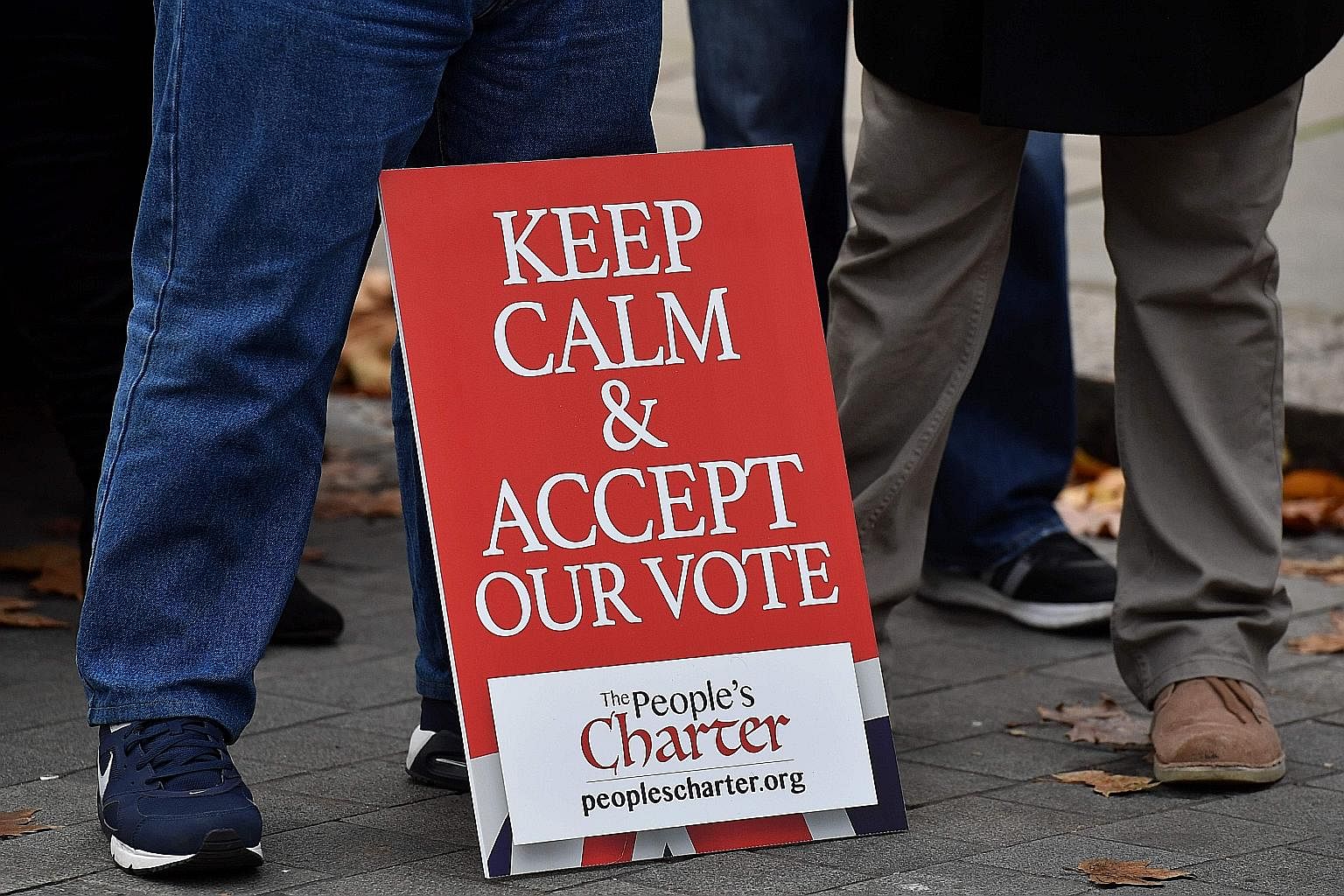Since the people of Britain narrowly voted in a June referendum to pull their country out of the European Union, financial experts and governments throughout the EU have struggled to calculate the potential impact of that decision on the British economy.
An initial, but still partial, answer came this week, as the British government unveiled its first budget since the Brexit vote: The cost will be a cool £122 billion (S$218 billion) over the next five years, and that's just to cover the extra government borrowing required to compensate for the anticipated sluggish economic growth.
Undeterred, British finance minister Philip Hammond claims that his government remains confident of its ability to prepare his country "to be resilient as we exit the EU". Confronting MPs in his first parliamentary debate on the economic impact of the Brexit process, Mr Hammond boasted that economic performance has "confounded commentators at home and abroad with its strength and resilience". The British economy, he claimed, would grow by 2.1 per cent this year, slightly higher than initially anticipated and substantially better than the 1.8 per cent annualised average growth rate for the EU as a whole.
But Mr Hammond was swiftly forced to admit that his country's economic future is far from rosy, as Britain's Office of Budget Responsibility (OBR), a state-funded agency created for the purpose of providing unbiased calculations on public finances, cut the forecast economic growth for next year from the original 2.2 per cent to just 1.4 per cent.
The shortfall in anticipated tax revenues would require an additional £122 billion in borrowing until the end of the current government's mandate in 2020.

More significantly, the OBR directly attributed much of this extra borrowing to anticipated restrictions on the free movement of EU workers to the UK, as that will result in an increase in the price of labour as well as potentially lower productivity.
While the OBR admitted that its projections remained "uncertain", the fact that a respected national agency made an explicit link between the planned tightening of immigration controls and lower economic growth appeared to contradict claims by Brexit supporters that this would free up financial resources for domestic spending projects.
Meanwhile, top European politicians are beginning to lose patience with a British government which seems unable to articulate what it wants from the EU, and is even unsure on how it would conduct the EU "divorce" negotiations.
Brexit Minister David Davis has yet to complete the recruitment of his negotiating team, and his trip to the EU's headquarters in Brussels earlier this week was a flop, with EU officials offering him protocol meetings consisting of nothing more than frosty hand-shaking photo opportunities.
Foreign Minister Boris Johnson's tactic of reminding Europeans that they need Britain as much as Britain needs the EU, and that it is in their interest to conclude a speedy and favourable economic deal with Britain is not going down well either.
Italy's economics minister Carlo Calenda was warned last week by Mr Johnson that his country would, supposedly, have to back a free trade deal with Britain to ensure it did not lose out on sales of prosecco, a sparkling Italian wine now doing particularly well in British markets. German officials, meanwhile, have been told their car exports to Britain would suffer.
"Putting things on this level is a bit insulting," Mr Calenda complained to journalists. German Foreign Minister Frank-Walter Steinmeier's reaction after his recent meeting with Mr Johnson is, apparently, unprintable.
British diplomats discount the significance of such clashes, claiming that they are simply "background noise" before the Brexit negotiations truly begin. But the reality is that far from softening, Europe's attitude towards Britain is now hardening.
Surprised by Mr Donald Trump's electoral triumph in the US and spooked by the prospect of populists winning power in the continent, EU leaders now appear determined that Britain will not be allowed an easy ride out of the EU, if only to deter other anti-EU movements from making similar demands.
"Welcome to hell" is how a former Belgian prime minister and current senior EU lawmaker greeted British officials who came to Brussels this week.
